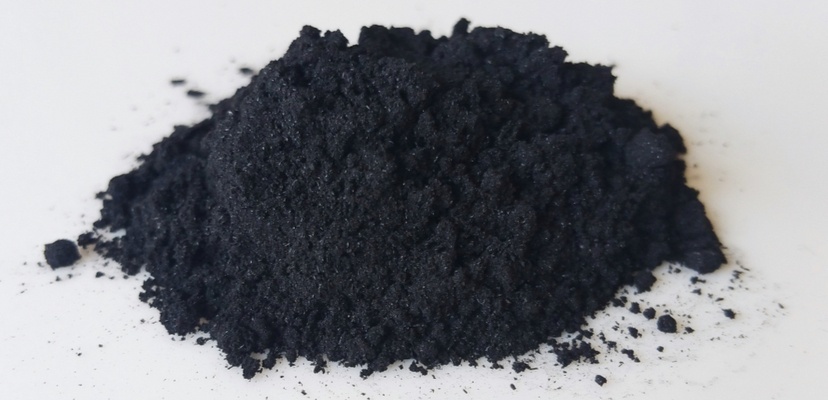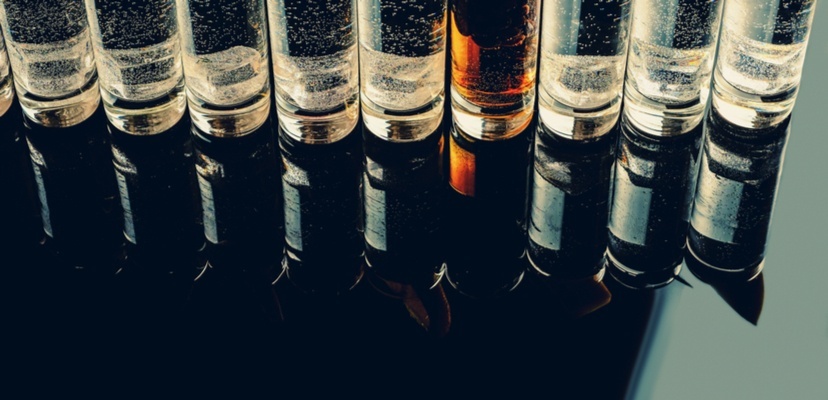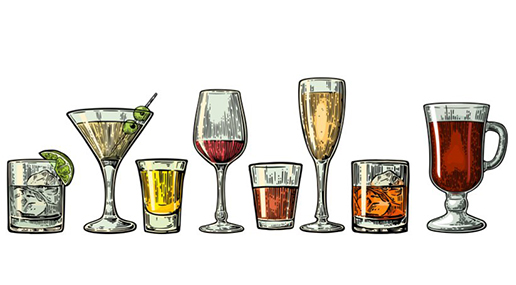As a follow-up to our popular Craft Distiller’s Guide to Filtration, we’re going more in-depth on how to use activated carbon.
Before your spirit is ready to sell, many distillers turn to carbon filtration to perfect the taste and look of their liquor.
Carbon filtering is an important step in craft distilling because carbon particles adsorb certain fatty acids that contribute to undesirable color, taste, or odor.
What is Activated Carbon?
Carbon is extremely porous and can come in a wide range of pore sizes, which is what allows it to be super-adsorptive. Adsorption, a process unlike absorption, is the adherence of molecules and particles to the surface of the material. When carbon is “activated” it means that the material has been specially treated to maximize its adsorptive properties (involving increasing its surface area) so that it can process and adsorb as much impurity as possible.
In essence, carbon filtration is the step that makes your product clean and crisp, and taste, smell, and look the right way consistently.
But there are rarely one-size-fits-all solutions when it comes to craft distilling.
Continue reading to find out which type of carbon medium is best for you.
Color-Corrector and Odor-Protector
Filter Sheets and Lenticular Cartridges
Activated Carbon Depth Filter Media: Processing liquids through a filter press or lenticular housing using carbon, cellulose, and resin filter media adsorbs color and odor. Carbon filter media is a cleaner application over loose carbon, while maintaining very high adsorption rates. This is a good alternative for batches that have a high volume of a lot of color or odor that you wish to remove.
Filter sheets can fit cartridges as well, and are available with DE to increase filtration capabilities for clarity while providing the chemical and organics removal capability of carbon.
Loose Powder

Activated Carbon in powdered form (PAC) can be tricky to handle, but is the most versatile form of the medium.
🍯For heavy, dark liqueurs: Carbon Grade S-51 would be an appropriate carbon material because it can adsorb very large particles, determined by its “molasses number.” This grade has a lower surface area than other options, adsorbing less particles or molecules comparatively. Because a liqueur is syrupy by nature, only the very large impure particles should be removed, so that it doesn’t become too runny and lose its flavor concentration.
 For whiskey and rum: Carbon Grade SX Ultra is a common choice because the medium’s pore sizes remove unwanted color, odor, and flavor, but they do not affect the core natural colors and flavors you want to preserve in whiskey and rum.
For whiskey and rum: Carbon Grade SX Ultra is a common choice because the medium’s pore sizes remove unwanted color, odor, and flavor, but they do not affect the core natural colors and flavors you want to preserve in whiskey and rum.
🍸For other spirits, beer, and wine: Carbon Grade DX 10 is a great choice for vodka because it removes impurities but preserves vodka’s natural character. This powdered activated carbon has a high surface area and a high molasses number, which means it adsorbs as many impurities as possible from the liquid for optimal clarity.
Best in Test: Choose Loose Carbon or Filter Sheets

The only way to really know which carbon filter grade to use or how it affects the product is testing.
- MC35 is a good place to start. It is a looser grade filter media (5 micron) with a good all-around carbon grade.
- If more carbon content per square inch of filter media is wanted, then try MC55 which has a higher carbon content, and a tighter filter matrix (1 micron).
- Sensory testing is a great way to determine how much liquid to filter. For color removal, process the liquid until the color bleeds through. For taste or odor removal, run until the odor is present.
Sensory testing is best to do at lab scale. Typically, distillers perform an exhaustion test on the media with their filtrate. That is—after the bleed-through, the distiller knows that they have exhausted the media. They can then scale up this number to know the process size.
Now’s not the time for an odd-man-out batch to mar your perfectly crafted beverage.
Proof33 can help with testing in our lab and filter media selection. Get in touch to book your filter test, or explore the carbon products that will fit your spirit filtration needs.
Explore Our Selection of Premium Activated Carbon Products





